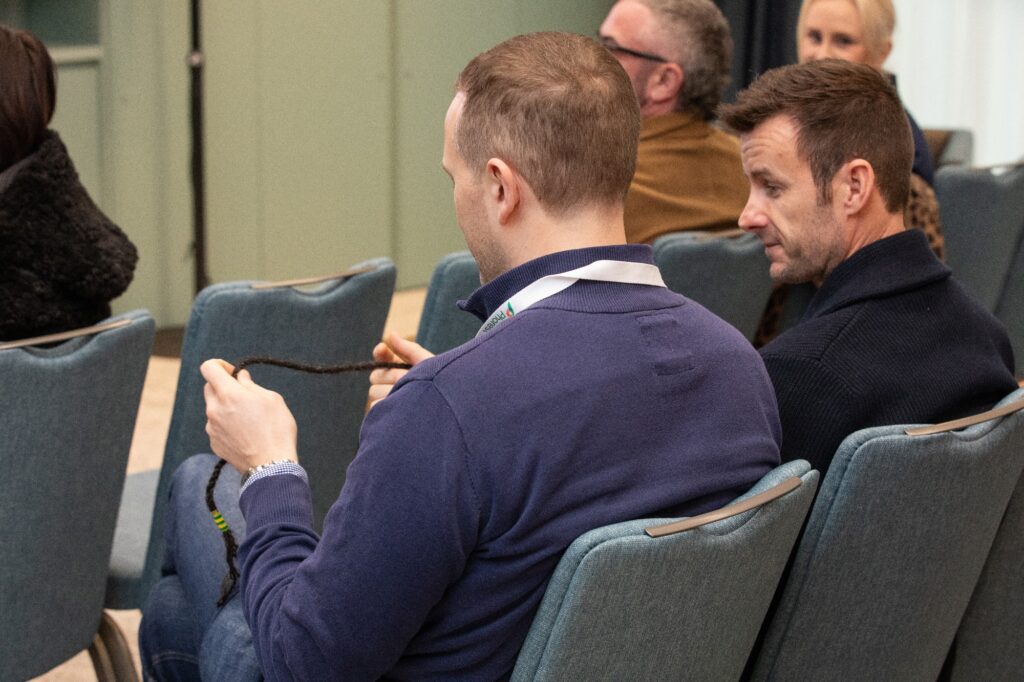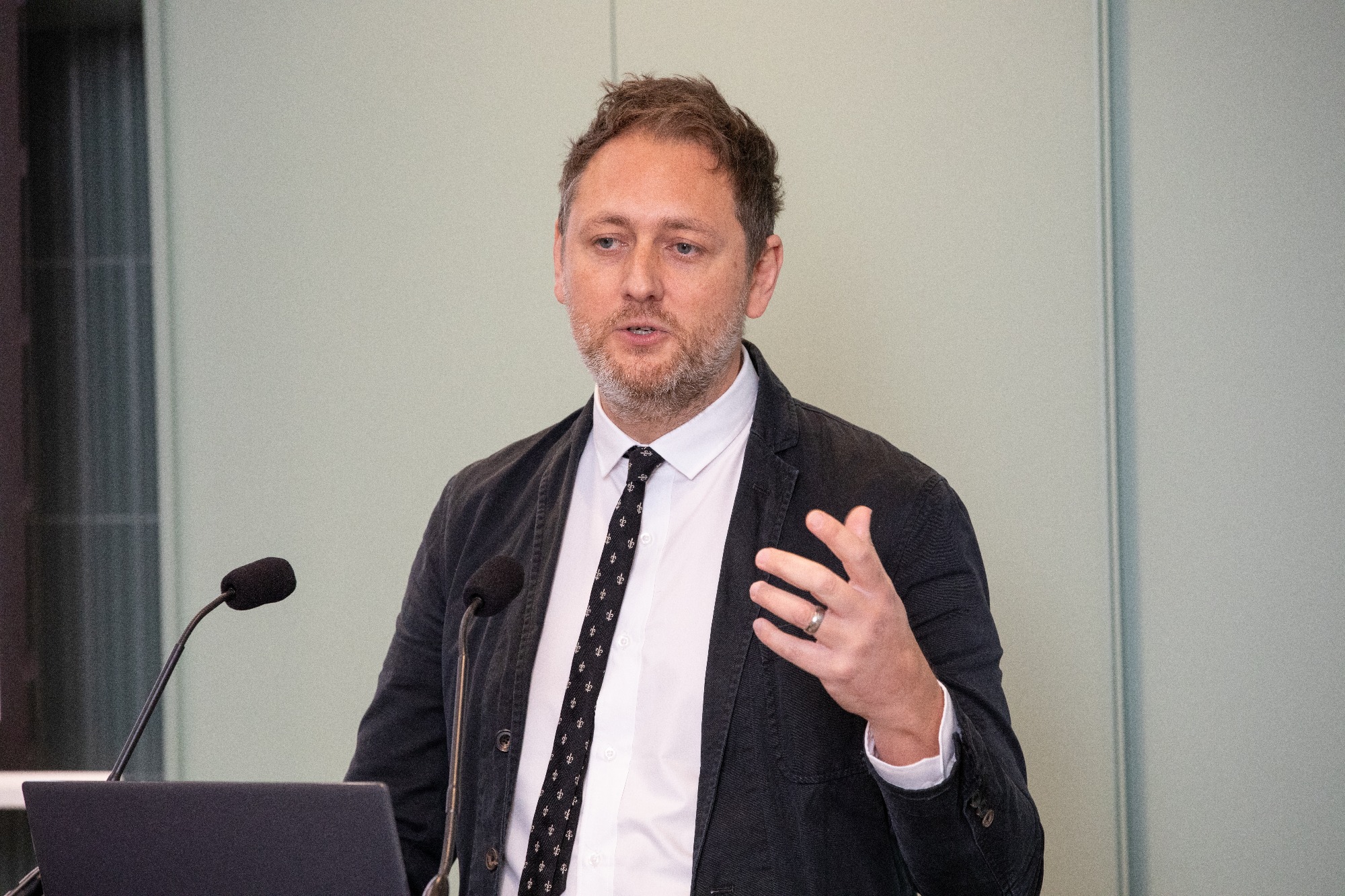The majority of salon professionals say that they would like their business to be more sustainable, but how can we, as an industry, achieve this? On day two of the Salon Owners Summit, Fry Taylor from Green Salon Collective and Professor Denis Baden, Professor of Sustainable Business at the University of Southampton, hosted a workshop explaining just that.
Learning About The Impact of the Industry on Our Environment
Beginning the workshop, Fry Taylor, Co-Founder of salon waste management organisation ‘Green Salon Collective’, took to the stage, explaining the difference between circular and linear economies. A linear economy, he described, is an industry that takes from our natural resources. A circular economy is one that constantly returns and recycles the resources it’s using and is less harmful to the environment. The salon industry, unfortunately, is currently classified as a linear economy. Green Salon Collective’s goal is to turn it circular.
Going “circular” has an impact on profits as well as the planet.
Fry Taylor explained that:
- 90% of Gen Z consumers expect brands to do more for the environment
- 85% of Gen Z consumers want to take personal action to protect the environment
- In a 2021 study by the British Beauty Council, Unilever’s purpose-driven brands grew by twice the rate of non-purpose-driven brands in the same period.
Green Salon Collective is Changing How The Industry Deals With Waste
“How long does it take for hair foils to break down after being placed in landfill?” asked Taylor. After allowing the crowd to suggest some answers, he informed a stunned audience that hair foils currently take 300–500 years to break down in landfills, and often release toxic chemicals into the environment, even when placed in a recycling bin. Hair waste is similarly harmful, he continued, explaining how hair that is not disposed of properly releases toxic methane gas into the environment; a huge contributor to global warming.
To reduce the impact of harmful salon waste, with the goal of eradicating it completely, Green Salon Collective offers a range of salon-specific waste management solutions across the UK and Ireland, including;
- Hair foil recycling: Where highlighting foils are collected from the salon, cleaned, and recycled infinitely; completely eradicating waste.
- Hair waste recycling: Green Salon Collective currently recycles hair in 10 different ways, creating everything from oil spill sponges to rope, twine, and even fabric from it!
Taking a selection of products from behind the podium, Fry Taylor passed around a multitude of these hair waste-derived products, allowing the audience to touch and look at them up close. “It’s amazing, what you can do with it,” he noted, to a nodding audience.

Practical Advice for Palpable Changes
Following a round of applause for Taylor, Professor Denise Baden took to the stage. With a background in climate change research and current position as a Professor of Sustainability at the University of Southampton in the UK, bringing a range of practical advice for salon owners. She began by defining the term “Carbon Footprint,” explaining that this refers to “the greenhouse gases produced to support human activities.”
Professor Baden explained that the use of hot water is one of the most carbon-intensive activities, both in the home and at the salon. She advised salon owners that they can reduce this impact by:
- Turning the temperature down on any showers or taps in the salon
- Installing aerated shower heads, which reduce the amount of water that comes from the shower/tap head
- Encouraging clients to use dry shampoo 1-2 times a week to reduce the amount of water required to wash their hair.
What Defines an Eco-Friendly Product?
Professor Baden asked the audience what they would consider an eco-friendly product. The audience answers enthusiastically, listing characteristics such as “natural ingredients,” “recyclable packaging” and “biodegradable.” While Professor Baden agreed, she explained that there’s more to eco-friendliness than many initially think. A huge number of companies, she says, claim to offer eco-friendly products but are greenwashing, using eco-friendliness as a marketing term rather than a commitment to the environment.
In order for a product to be truly eco-friendly, Professor Baden listed the following characteristics:
- The product/appliance/technology must save energy while being used
- The product must result in less water/energy being consumed as you’re using it
- The brand/company that produces the product must be known for its green credentials; ie, it uses recyclable materials as packaging and avoids ingredients that damage the environment.
Sharing Resources to Make a Positive Impact
Ending the workshop, Professor Baden shared a range of resources available to help salon owners and other industry professionals improve their sustainability efforts and “green their glam” businesses. These included:
- Green Salon Collective (UK & Ireland)
- Eco Hair and Beauty (UK & Ireland)
- The Green Beauty Community (USA)
Here’s to a more eco-friendly industry and a sustainable future for us all!
Feeling the Salon Owners Summit FOMO?
Want to make sure you’re in the room to hear insightful talks like this next year? Get your tickets for the next Salon Owners Summit!
Keep Learning from the Experts
Read more of the 2024 Salon Owners Summit Recaps.


